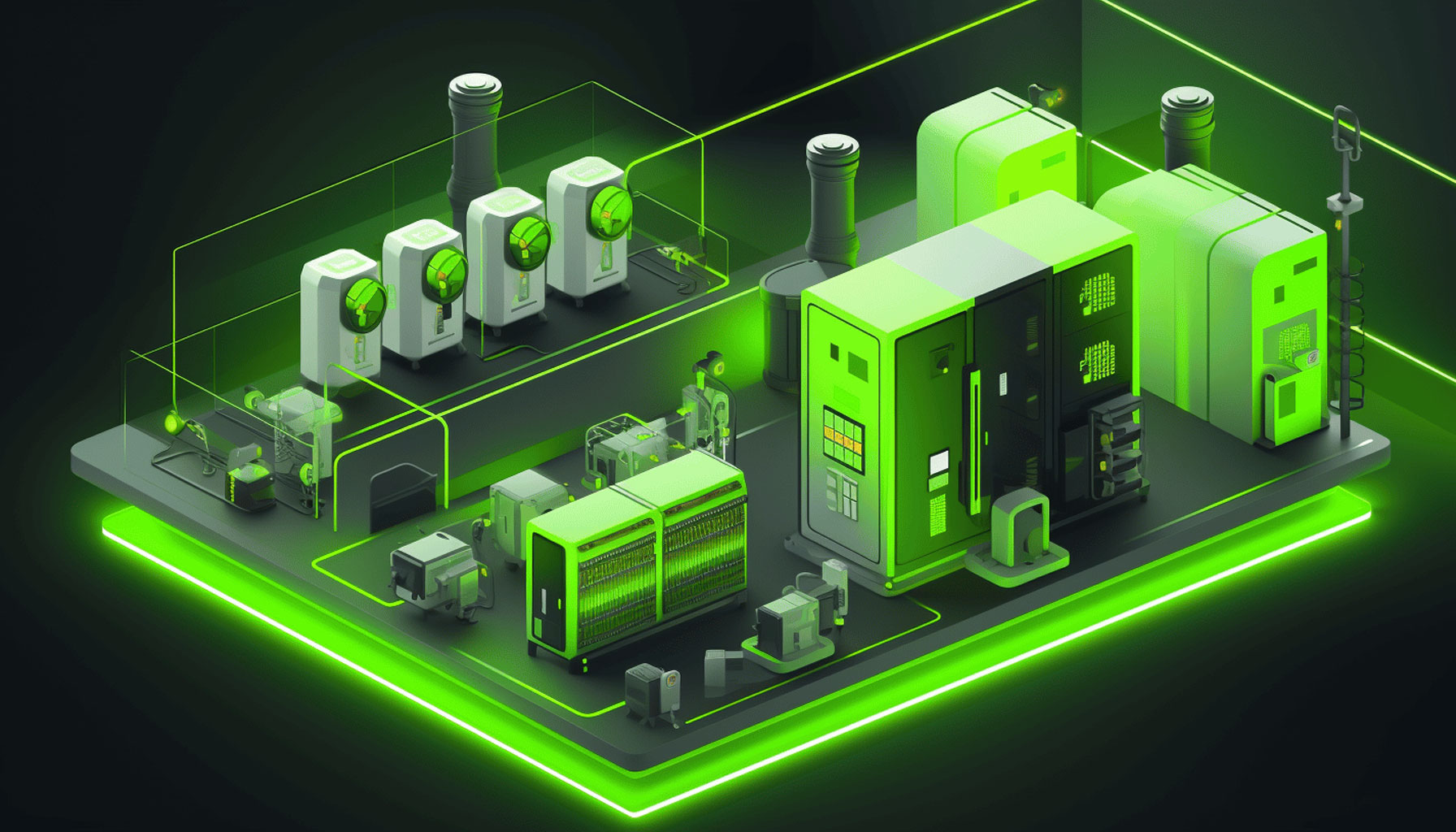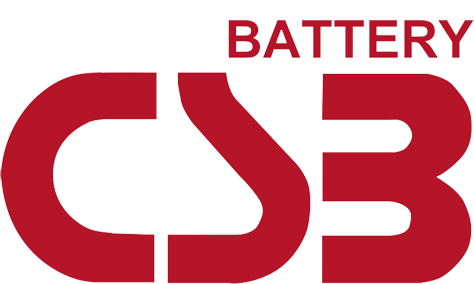The Perfect Partnership of UPS Systems and Generators
Welcome to our comprehensive exploration of the integral role of Uninterruptible Power Supply (UPS) systems and backup generators in the dynamic world of power outage prevention. Our discussion revolves around the vital understanding of these power backup solutions' functions and usage, their invaluable importance to UK Data Centres, and their mounting significance to the global energy market.
Delving into the delicate interplay between UPS and backup generators, you'll discover why this duo constitutes the gold standard in power protection, ensuring minimal downtime and supporting continuous operations even amidst unforeseen outages. In this respect, we also underscore how, in critical environments like hospitals and data centres, this power protection combination caters perfectly to the stringent requirement for continuous and reliable power supply.
Join us in understanding and appreciating these powerful companions in our day-to-day operations, where any amount of downtime can indeed make or break a business. By joining Secure Power on this journey, you'll undoubtedly see the wisdom in investing not just in one, but potentially both systems — promising ultimate power security.

Uninterruptible Power Supply Systems: Function and Usage
A proficient understanding of Uninterruptible Power Supply (UPS) systems can significantly help manage power cuts and interruptions effectively. Envisioned to provide immediate power backup, these systems are essential to minimise the disruption during power outages, acting as a bridge until generators kick in or the power is restored. Let's delve into the specifics to unveil the underlying intricacies of this indispensable technology.
Short-term Power Backup Solution
UPS systems offer a nearly instantaneous power backup when needed the most— during sudden power failures. These systems work on batteries lasting anywhere between a few minutes to an hour, ideal for short-term power outages. By the time the UPS battery exhausts its charge, the chances are that the normal power would have resumed, or the generators would be operational.
Here's what sets UPS systems apart:
- Instant backup: Unlike generators that may take some time to start, UPS systems provide power backup almost instantly.
- Short-term solution: Although not meant for prolonged use, UPS systems are perfect for covering short power interruptions.
- Battery-powered: Fitted with batteries, UPS systems discharge stored energy to provide temporary power backup.
- User-friendly: Being compact and portable, most UPS systems are easy to use and require minimal installation efforts.
Upon understanding the functional aspects of UPS systems, it becomes evident that this technology serves as a quick response team during critical power failures.
Ideal for Critical Appliances Protection
Not only do UPS systems offer power backup, but they also play a vital role in safeguarding critical appliances. As sudden power cut-offs can result in data loss or damage to gadgets, the immediate power supply offered by these systems can protect the appliances from such unanticipated effects. With a UPS system connected, not only you get an opportunity to safely shutdown your appliances, but it also provides a surge protection feature, shielding your devices from voltage spikes.
Let's summarise the benefits:
- Data Protection: UPS systems prevent hard shutdowns, saving the devices from potential data loss.
- Appliance Safety: By providing a buffer time to safely shut down devices, UPS systems prevent electronic appliances from undue damage.
- Surge Protection: Most UPS systems offer surge protection, defending your gadgets from sudden voltage fluctuations.
- Peace of Mind: Knowing that your critical appliances are shielded from sudden outages makes UPS systems an asset.
In essence, a UPS system does more than just providing power backup. It acts as a protective shield for your critical devices, ensuring their optimal performance despite unexpected power interruptions.
Uninterruptible Power Supply systems are indeed a boon, bridging the gap between sudden outages and generator kick-ins. By understanding their functionality and usage, you can ensure the safety of your devices and prevent unexpected data loss.
Backup Generators: Function and Usage
Famed for their reliability during prolonged power outages, backup generators have carved out a niche in both residential and commercial settings. Acting as long-term lifelines reassuring power continuity during unexpected blackouts, these powerhouses symbolise convenience, self-reliance, and peace of mind.
Long-term Power Solution
Quietly waiting in the wings, a backup generator prompts an almost immediate transition from grid power to generator power during a power outage. However, not all generators function in the same way or for the same duration, making it essential to understand your power needs and the capabilities of your generator.
Backup generators truly shine in situations demanding extended power supply. Unlike their portable counterparts, these units aren't simply stop-gap measures until the power returns. They represent a durable solution, capable of running for days or even weeks at a time, ably powered by a variety of fuel sources.
Their longevity and robustness owe a great deal to their design and their fuelling mechanisms. Naturally, the duration for which they can supply power depends on several factors, including:
- The type of fuel used
- The power capacity of the generator
- Power usage habits
Most commonly, propane, natural gas, or diesel fuels these sturdy machines, hence their ability to provide a dependable, long-term power solution is ensured.
Suited for Prolonged Outages
Asking why a backup generator is well-suited for prolonged outages is akin to asking why a marathon runner is suitable for long-distance running. The reasons are rooted in their inherent 'built for the long-haul' composition.
While a portable generator is comparable to a sprinter, excellent for brief spurts of power but not designed for continuous, long-term activity, a backup generator reflects endurance and longevity. Fuelled by a direct line to a natural gas or propane source, backup generators aren't hampered by the need for frequent refuelling. They are designed to automatically kick in when the power goes off and keep going for as long as needed.
This capacity for sustained power delivery makes a backup generator invaluable during prolonged outages caused by natural calamities like hurricanes, floods, or extensive electrical infrastructure damage. When prolonged blackouts loom, the resilience of backup generators allows us to withstand these abrasive instances, offering unwavering power supply and a beacon of light and warmth during adversity.
Incorporating a backup generator into your contingency plan is an investment toward secure, uninterrupted power during trying times. With their ability to provide extended, hassle-free power supply, it certainly justifies the upfront cost and earns its keep in no time. Having to be without power for hours, days, or even weeks isn't just inconvenient – it can be incredibly disruptive, and in some cases, even dangerous. Thankfully, the unyielding power resilience offered by backup generators counteracts the adverse circumstances of prolonged outages, embodying the phrase 'A stitch in time saves nine'.
Hybrid Power Backup Solution: UPS Systems and Generators
Protecting your essential equipment from power disruptions, small and large, has never been more crucial than it is today. To ensure continuous and uninterrupted functionality of vital systems, it's invaluable to invest in a robust power backup solution. In this regard, hybrid power backup solutions, such as Uninterruptible Power Supply (UPS) systems and Generators, come to the fore.
Continuous and Reliable Power Supply
One way to guarantee a constant power supply to your critical equipment is by pairing a UPS system with a Generator. While these two operate independently, when they work in unison, they offer an undeniable bolstering effect. Let's explore this further.
- Uninterruptible Power Supply (UPS) - As its name suggests, a UPS provides uninterrupted power, ensuring that your equipment won't shut down suddenly in the event of a power outage. This system is highly effective in preventing damage to electronic devices, data loss, and unexpected downtime. However, a UPS can only supply power for a limited duration, usually enough to safely shut down the equipment or switch over to a more long-term power supply, like a generator.
- Generators - Often powered by diesel, propane, or natural gas, generators are designed to supply power over extended periods. They start operation a few seconds after detecting a power outage, providing a continuous power source once the UPS runs out.
By placing a UPS and a generator in unison, continuous and reliable power to critical equipment is secured. In the case of an abrupt power outage, the UPS ensures an immediate response by supplying stored energy, and as the outage prolongs, the generator seamlessly takes over, providing a prolonged power supply.
A Stopgap Solution
In the crossover period between the initial power cut and the generator becoming operational, a UPS operates as an efficient stopgap solution. It instantaneously provides power, ensuring that there's no gap in the electricity supply to your essential equipment. It supplies power long enough for the generator to kick in and stabilise. This transition ensures that, against any odds, your equipment doesn't suffer from sudden shut-downs or operational halts.
This dual system consolidates the benefits of a UPS and a generator to minimise downtime effectively. It's a solution that could potentially save thousands in equipment damage, and more importantly, ensure the uninterrupted operation of crucial systems.
In truth, a hybrid system which teams a UPS with a generator isn't just a safeguard against power disruptions. It's an investment in reliability, assurance, and peace of mind for operations that simply cannot afford unexpected downtime.
UK Data Centres and Power Backup Systems
With technology getting more entrenched into our daily lives each passing day, data centres have become a vital backbone of businesses across the world, more so in the technologically advanced United Kingdom. Businesses, large or small, are investing heavily in these data centres, and one area gaining significant traction is the integration of robust power backup systems. We, as professionals in the field, cannot emphasise enough the importance of a reliable power backup system to ensure business continuity in data centres. The current trend indicates a heightened investment in Uninterrupted Power Supply (UPS) systems and diesel generators across UK data centres.
Having a power backup system in place does not just ensure uninterrupted services, but also safeguards the invaluable data that businesses heavily rely upon. Think of it as a safety net that prevents loss of access, data loss, or complete system failure due to power outage. It is important to highlight that UPS systems and diesel generators are serving unique needs in data centres.
"Reliable power backup systems are not just an investment; they are an insurance against power interruption that could otherwise cause significant business damages."
In a rapidly growing digital environment, it is no surprise that Data centres in the UK are intensifying their efforts to upgrade and enhance their backup power systems. By putting measures in place now, these data centres are positioning themselves to tackle any power-related challenges they may face in the future. Thus, the investment represents a prudent risk management strategy, as it secures the integrity and availability of data even amidst power disturbances.
Investing in a fail-safe power backup system is not just a tick box for compliance or operation. In essence, it's a strategic move that gives businesses a competitive advantage by ensuring they can keep their services running and their customers happy, even in the face of adversity.
Global Market for Backup Power Systems
The surging need for energy worldwide, coupled with an increasing number of power outages, is creating significant growth opportunities for the global backup power systems market. Reliability is now the cornerstone of modern energy solutions, with businesses and residential consumers worldwide now more inclined towards a steady power supply as the backbone of their everyday activities.
According to analysts' predictions, the global market for backup power systems is expected to register a compound annual growth rate (CAGR) greater than 3.5% from 2023 to 2028. This macro view presents an exciting outlook for stakeholders in the industry, positioning backup power systems as a key frontier in the evolving energy landscape.
Growing Demand for Reliable Energy Solutions
Without a doubt, one of the most significant drivers of this promising market is the escalating demand for reliable energy solutions. Hot sectors like data centres, hospitals, and manufacturing plants, alongside residential areas, are perpetually seeking efficient back-up solutions to ensure zero downtime.
Here are some key reasons for the growing need:
- Constant digital transformation: Businesses are increasingly becoming digital, necessitating consistent power supplies.
- The unpredictability of power supply: In many regions, especially in developing countries, power supply is erratic, leading to a higher dependence on backup systems.
- Increasing occurrences of natural disasters: Weather-related power outages are on the rise, leading to increasing demand for backup power systems.
Role of Diesel Generators
In the broader backup power systems market, diesel generators stand out significantly. They're projected to take home the lion's share of the global backup power market due to their high efficiency and the ability to swiftly kick-in when power outage occurs, among other benefits.
However, despite their dominance, diesel generators are not without their drawbacks. The responsibility for the industry is to address these challenges to make diesel generators (or find alternate solutions) that are more sustainable while maintaining their convenience and power reliability.
Despite its expected dominance, it's important for us, the industry players, to constantly innovate and find greener solutions for backup power systems. After all, we are not just serving today's market needs. We are shaping the future of the energy landscape for generations to come.
So, as we delve into the future, it's clear that the global market for backup power systems has potential. The challenges we face, in reliability and sustainability, are not roadblocks, but compelling opportunities for innovation. As we continue to navigate this path, let us remember: our shared future is bright, and it's powered by the collective strides we make in reliable energy solutions today.
The Interplay of UPS and Backup Generators in Ensuring Minimal Downtime
Power failures can spell disaster for data centres. Even a brief interruption to electrical supply can result in significant data loss and equipment damage. In this context, we want to delve into the crucial role played by Uninterruptible Power Supply (UPS) systems and backup generators in ensuring streamlined operations and minimising downtime.
Risks Mitigation
In our experience, one of the biggest risks during a power outage is the gap between the outage time and when the backup generator kicks into operation. This gap, although often counted in mere seconds, could be detrimental. But thanks to UPS systems, we can effectively bridge this gap. Here's how:
- Immediate Power Provision: A UPS system jumps into action the moment a power outage registers. It provides immediate power to critical systems, giving the generator time to kick start without causing interruptions. This nifty capability can save you from many risks related to data loss and potential equipment damage.
- Brief Run Time Requirement: Data centres often require UPS systems with just short run times. After all, their main job is to fill the gap before the generator activates, which usually takes mere seconds.
The interplay between these two systems is masterfully designed for risk mitigation, and our function in this delicate dance is ensuring their perfect synchrony.
Continuous Operations
Maintaining 24/7 operations in data centres necessitates having a well-structured power backup plan. A notable aspect of this plan is the collaborative work of UPS systems and backup generators. While the UPS counteracts the immediate effects of a power outage, the robust backup generator steps up to provide long-term power supply, thereby ensuring continuous operations.
Imagine these systems as relay runners in a race against downtime. The UPS is the sprinter who runs the first lap (the crucial gap duration) with the baton (power) at maximum speed. As this sprinter's energy wanes after the first lap, the marathon runner (backup generator) takes the baton to complete the rest of the race with sustained energy (long-term power).
In the end, this collaboration of systems helps keep anything from minor hiccups to massive power outages from interfering with our service, thereby allowing us to continue providing the top-notch service that our clients expect from us.
In the world of data centres, the saying "We are only as strong as we are united, and as weak as we are divided" holds notably true because the strength of our operations lies in the unity of our UPS systems and backup generators. These two systems, when working in perfect tandem, can effectively mitigate the risk of downtime, thereby ensuring smooth sailing for your data, regardless.
Best Practices in Power Protection: UPS and Backup Generators Combination
In a world increasingly reliant on electricity, power protection is an essential consideration in safeguarding operations for businesses and critical services. To ensure a continuous power supply and avoid the damaging impact of a power outage, implementing a robust power protection system is vital. One of the most reliable options is the combination of a Double Conversion On-line Uninterruptible Power Supply (UPS) system with a backup generator. This gold standard in power protection offers the double assurance of immediate power supply in the event of failure, with the UPS kicking in, followed by the generator for long-term provision.
The Gold Standard for Power Protection
The magic of this combination lies in the inherent attributes of each component. The UPS system is designed to react immediately, providing power seconds after a failure. This is critical in protecting sensitive equipment from sudden power loss. However, UPS systems are not purposed for long-term power supply.
This is where the backup generator steps in. Activated when the UPS system kicks in, the generator provides the essential sustained power source. It's able to continue supplying power comfortably until the primary power source is restored.
- The UPS system guarantees immediate power response
- The Backup generator offers sustained power supply
Both elements work seamlessly together, offering smooth and continuous power in any situation.
"Combining a double conversion on-line UPS with a backup generator is considered the best choice for continuous power supply."
Critical Environments Requirements
In critical environments such as hospitals, financial institutions, and data centres, the need for uninterrupted power runs deeper. These environments not only require power for their day-to-day operations but also for maintaining vital services that can affect the well-being and safety of individuals or the security of immensely valuable data.
In such settings, the combination of UPS systems and backup generators is not only the best practice; it is critically essential.
Remember, when it comes to power protection, prevention is the best approach. And in this case, the old saying holds - two is indeed better than one. So, reinforce your power protection systems today with the combination of an on-line UPS and a backup generator - the true gold standard in power protection.
Conclusion
In essence, the integration of Uninterruptible Power Supply (UPS) systems and backup generators offers powerful advantages to businesses, especially in sectors where power continuity is key to business operations. Using this combination ensures constant power supply during outages, enhances energy efficiency, reduces operational risks, and significantly minimises downtime.
From the server rooms of IT companies to logistics centres and healthcare facilities, implementing the gold standard of power protection – a reliable UPS system supplemented by a sturdy backup generator — makes all the difference.
At Secure Power, your efficient power solution is just a click away. We offer a range of quality UPS systems and accessories from leading brands such as APC by Schneider Electric, Eaton, Riello UPS, and Uniti Power to meet your unique power protection needs. Please visit Secure Power to explore our wide selection of products tailored to maintain your business continuity. Remember, the right power protection plan is a crucial investment, securing your operational success now and in the future.
At Secure Power, we are committed to powering your progress today, tomorrow, and beyond!
Frequently Asked Questions
-
What is an uninterruptible power supply (UPS) system?
An uninterruptible power supply (UPS) system is a device that provides emergency power to electrical equipment in the event of a power outage or fluctuation. It ensures uninterrupted power supply to critical systems, such as data centres, hospitals, and businesses.
-
What is the purpose of a backup generator?
A backup generator is a standby power source that automatically supplies electricity during power outages. It is typically fuelled by diesel, natural gas, or propane, and is used to provide uninterrupted power for more extended periods than a UPS system.
-
How does a UPS system work with a backup generator?
A UPS system works in conjunction with a backup generator to provide continuous and reliable power supply. During normal operations, the UPS system conditions and regulates the incoming power. In the event of a power outage, the UPS system instantly switches to battery power while the backup generator starts, ensuring uninterrupted power until the generator takes over.
-
Do I need both a UPS system and a backup generator?
Having both a UPS system and a backup generator is highly recommended to ensure maximum reliability and protection against power failures. The UPS system provides instantaneous power backup until the generator kicks in, bridging the gap and preventing any disruption to critical operations.
-
What factors should be considered when choosing a UPS system and backup generator combination?
When selecting a UPS system and backup generator combination, consider factors such as the power requirements of your equipment, the runtime needed during a power outage, the load capacity of the generator, installation space availability, and future scalability of your power backup system.














